You are watching a TV show---a show that lies beyond all conception of space and time, where the mysterious and the commonplace meet, and where giant floating eyeballs hang around for no discernible reason.
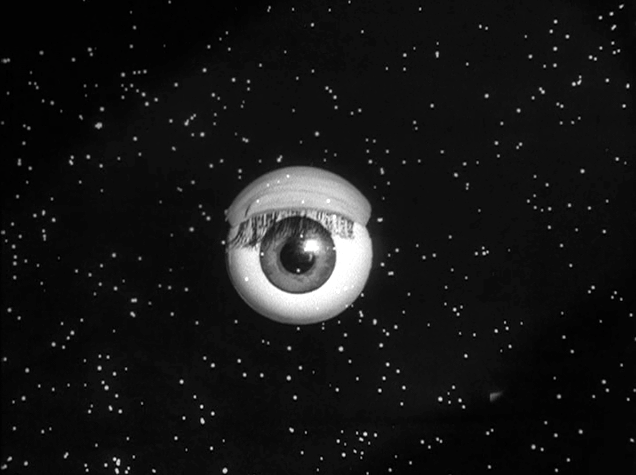
This show is a middle ground between light and darkness, between the sensibilities (and smoking habits) of a previous generation and the ever-present dread that of necessity haunts all modern societies. It is a show that takes you into the realm of the imagination.
We call it The Twilight Zone.
History and Legacy
Submitted for your approval, the story of one Rod Serling, of Syracuse, New York---a man fated to live out a fantasy, and bring to life a show that would change television forever.
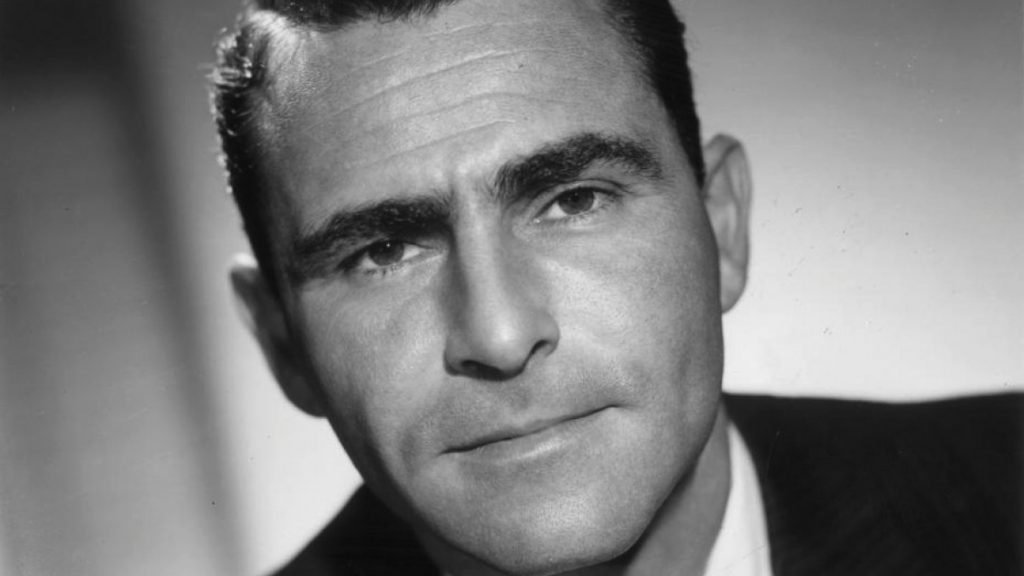
Having written and produced a number of hit dramas in the 1950s, Mr. Serling grew disillusioned with the business in which he had won so much acclaim. Young and hot tempered, he clashed many times with established TV executives, particularly when it came to censorship and corporate sponsorship.
It is rumored that, when he was told he could not air a scene in which a character lit a match, because the show he was producing was sponsored by a company that made cigarette lighters, Mr. Serling had finally had enough. He was also deeply troubled by the studios' aversion to covering controversial topics such as racism, war, and capital punishment.
But he determined that such subjects could be broadcast, under the right circumstances. Being a fan of science fiction, he understood how topical issues, whether moral, social, or political, could be cleverly disguised by being transposed into fantastic settings. The names of people and places could be disguised, even while the themes, motifs, and hard questions of the story were perfectly preserved.
From this concept came a television series that would set the pace of all future science fiction serials. It would produce works that would be analyzed and treasured across the decades and generations. It would also be ripped off by future shows not clever enough to come up with original stories. Likewise, it would be the subject of endless parodies.
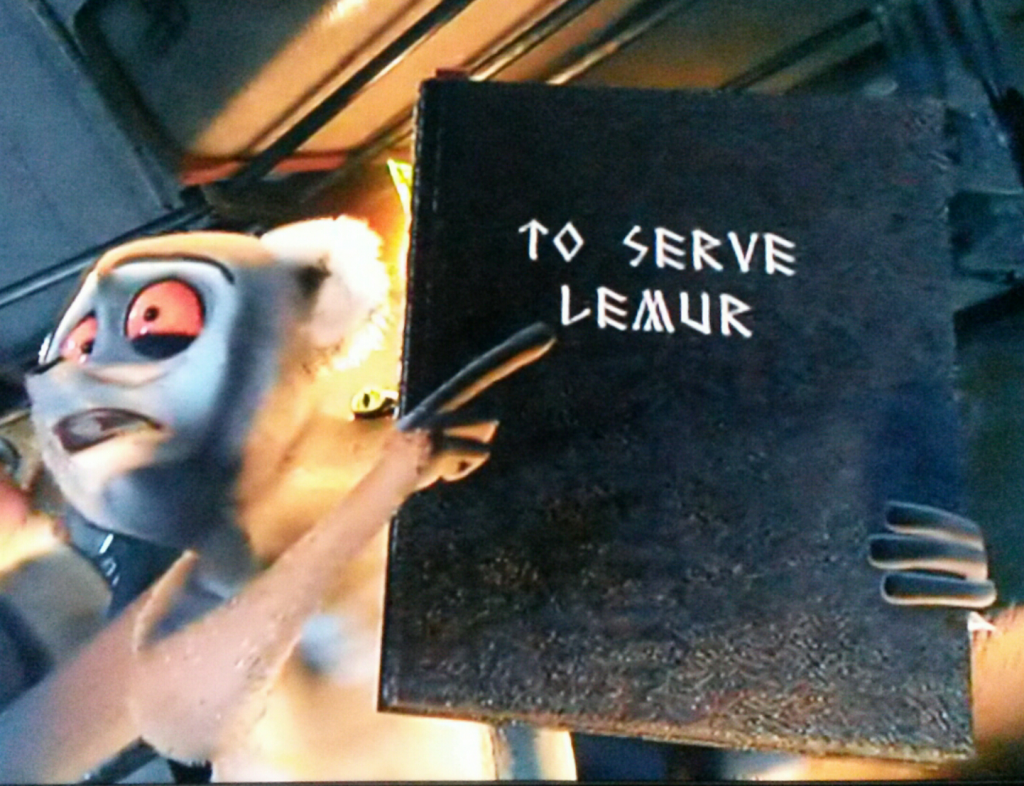
"It's a COOKBOOK! A COOKBOOK!"
And the key to the show's success was no mystery: it focused on the writing.
That's what kept people tuning in, week after week. Throughout its run, the show picked up many brilliant writers and put in the extra effort to deliver great scripts. Each outing promised an intriguing tale built around a fantastic idea and, often, a mystery that challenged the audience to try and decipher it before the big reveal at the end. Because The Twilight Zone took its writing seriously, it prospered---a lesson today's showrunners and producers would do well to remember.
It would also launch (or at least springboard) the careers of many actors and actresses, including a number of household names. Such future luminaries would include the likes of
William Shatner
George Takei
Roddy McDowall
Robert Redford
Burgess Meredith
Jack Klugman
Elizabeth Montgomery
Peter Falk
Carol Burnett
Giving credence to the idea that great actors are created from great writing. But more than that, The Twilight Zone bequeathed a new iconography onto the artistic landscape, making an imprint on the public consciousness. Not only are many of its greatest lines still quotable today, nearly 60 years after its debut, but its approach towards big-idea-driven storytelling would echo in such future series as Star Trek, The Prisoner, and Dr. Who.
The Stories
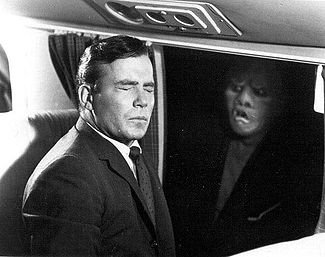
Contrary to what many people believe, The Twilight Zone is not a horror show.
There are some who claim it is not even a science fiction show, as there are several episodes that feature no supernatural events or concepts at all.
Rather, The Twilight Zone is a series dealing with large hypotheticals. Every episode asks a "What if...?" question and follows that to a twist ending. A simple enough formula, but it churns out some amazing writing.
The situations often lead to some kind of psychological anxiety. A number of scenarios are fitting described as Kafkaesque. But a lot of the storylines are anything but sinister, and may even lead to the central characters overcoming a problem or getting their wish (though there are also a few "Be careful what you wish for" stories in the lineup).
Of course, not all the episodes are winners. And quite a few of them are repetitive. Some of the more recycled ideas that play out in the series include
- A character meets the personification of Death, or discovers they are already dead.
- An astronaut comes back from space to find strange things happening on Earth.
- A mysterious stranger is more than what he seems (and may, in accordance with the first bullet point, be Death itself).
- Accidental time travel. Tons and TONS of accidental time travel.
My Judgment
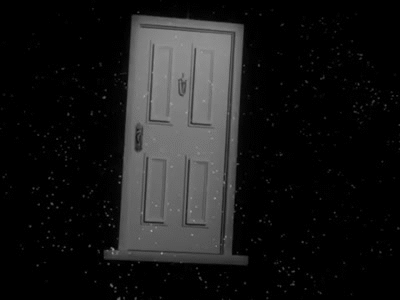
The Twilight Zone is indispensable. It is required viewing for anyone who wants to get a handle on modern writing. Those who ignore it do so at their own peril. And while I could not possibly comment on each individual episode, I will say that the series as a whole is a great victory for speculative fiction, and it has been a great help in my quest to develop a unified theory of iconography---perhaps even more so than Metropolis did.
Seasons 1, 2, 3, and 5 are on Netflix. I can only suppose that season 4's absence is just another mystery that this series has given the world.
The astute TV historian will also note that there were several permanently pulled episodes of The Twilight Zone. These, too, are missing from Netflix. And while I'm sure the censors had their reasons, I must say it is sad to see Mr. Serling's dream of a censorship-resistant TV show fall victim to such permabans.
Regardless, having as much as the series as we do have, so readily available in one's own home, is fitting---as much so as keeping a collection of literary classics in your personal library.
Watch, enjoy, and be astounded.
Previous entries in the Netflixing series:
Past Years
TV Shows
Movies
